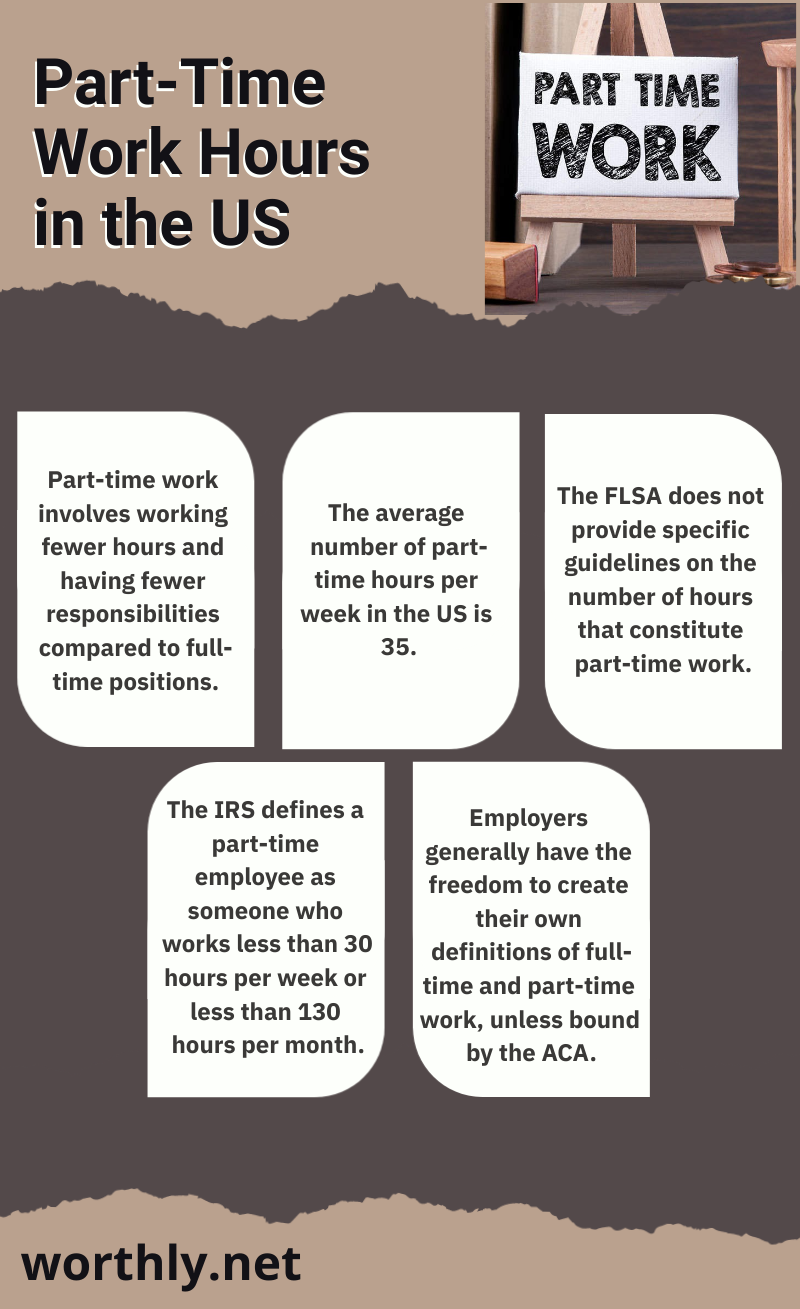Did you know the average part-time hours per week in the US is 35? This info comes from the Bureau of Labor Statistics. It shows part-time work is common. It helps both workers and companies.
Part-time jobs mean working less hours. You also have fewer tasks than full-time jobs. The Fair Labor Standards Act (FLSA) doesn’t say how many hours is part-time. But, the IRS says it’s less than 30 hours a week or 130 a month.
Companies can decide what they consider part-time. This is unless the Affordable Care Act (ACA) affects them. We’ll look into good and bad points of part-time jobs. Also, we’ll talk about overtime rules and rights for part-time workers.

Advantages and Disadvantages of Part-Time Employment
Part-time employment has pros and cons for employers and employees. Knowing them helps businesses make smart decisions about hiring part-time workers.
Advantages of Part-Time Employment
- Part-Time Employee Benefits: Hiring part-time workers saves money. They work less hours, cutting costs on salaries and benefits.
- Part-Time Employee Flexibility: It allows employers to change staff levels as needed. This helps during busy times or for special projects.
- Part-Time Employee Productivity: Many think full-time workers do more, but research shows part-timers can be just as productive. They often work more efficiently and are happier with their jobs.
Part-time jobs also give workers a better balance between work and life. They have more time for personal interests. Part-time workers can set their schedules. This makes time for education, hobbies, or taking care of family.
Disadvantages of Part-Time Employment

“Part-time employees may not accomplish as much in the same time frame as full-time employees.” – Research Study
One con of part-time work is that these employees might not do as much work in the same time. They have fewer hours which may slow down how quickly tasks get done. It can also be harder for them to connect with coworkers because they’re not around as much.
But, businesses can fix these issues. They can plan schedules well, talk clearly, and work together well. This way, part-time workers fit right into the team.
| Advantages | Disadvantages |
|---|---|
| Lower overhead costs | Accomplishing less in the same time frame as full-time employees |
| Flexibility in workforce management | Difficulty forming strong relationships with colleagues |
| Ability to meet seasonal fluctuations in consumer traffic | – |
Knowing the pros and cons of part-time work is key for businesses. By using the advantages and tackling the challenges, employers can make part-time workers a big part of their success.
Overtime and Part-Time Workers

Part-time workers have special rules for overtime pay. These rules are in the Fair Labor Standards Act (FLSA). Part-Time Employee Overtime is key for both bosses and workers to get. It helps follow the law.
Part-time workers usually don’t work enough to get overtime. But, if they work over 40 hours a week, they must get extra pay. This means they get more money for extra time worked.
Some places have different overtime laws from the FLSA. These might include extra pay after working certain hours each day. So, it’s important for everyone to know their state’s Part-Time Overtime Regulations.
Knowing about Part-Time Employee Overtime can keep bosses from legal trouble. It’s about paying part-time workers right for overtime. This makes work fair for everyone.
| State | Overtime Regulation |
|---|---|
| California | 1.5x pay after 8 hours in a day, 2x pay after 12 hours in a day |
| New York | 1.5x pay after 40 hours in a week |
| Texas | No state-specific overtime regulations for part-time employees. Follows FLSA guidelines. |
Different states have different overtime rules for part-time workers. It’s very important for both employers and employees to know their state’s rules. This ensures everyone is treated fairly and follows the law.
Understanding Part-Time Employee Overtime helps bosses keep a good relationship with their part-time staff. And it makes sure they follow the law.
Conclusion
Part-time jobs are common in shops and restaurants. People working part-time have the same rights as full-time workers. This includes getting paid more for extra hours, help if they get hurt at work, and time off for family or medical reasons.
Many people with part-time jobs are happier. They work less so they have time for fun or hobbies. This helps them enjoy their job more.
Choosing between part-time and full-time work depends on what a person needs or wants. Some people might need a steady job that pays more. Others might like to have more free time. It’s all about what is best for you.
FAQ
How many hours can a part-time employee work?
A part-time employee usually works less than 30 hours a week. Or, they work less than 130 hours a month. The Fair Labor Standards Act (FLSA) does not set these hours. The IRS decides who is part-time.
What are the limitations on part-time work?
Part-time work usually means fewer hours and duties. Each employer sets their own rules. Yet, some follow the Affordable Care Act (ACA) guidelines.
What are the advantages of hiring part-time employees?
Hiring part-time employees costs less. It also offers more flexibility in managing the team. Plus, it helps during busy seasons.
Part-time staff may enjoy better balance in life. They have more time for hobbies too.
Do part-time employees qualify for overtime pay?
Generally, part-time employees don’t get overtime pay under the FLSA. But, if they work over 40 hours a week, they must get extra pay. Some states have different overtime laws.
What are the workplace rights of part-time employees?
Part-time workers have the same rights as full-time ones. This includes overtime pay, workers’ compensation, and leave for family and medical needs.
Where are part-time employment opportunities most common?
You can mostly find part-time jobs in retail and hospitality. But, there are jobs in many sectors.
Does part-time employment offer job satisfaction?
Whether you’re satisfied with a part-time job depends on you. Such jobs can give a better balance in life. They allow more time for personal things. This can make you happier at work.
What factors should one consider when deciding between part-time and full-time employment?
Choosing between part-time and full-time work depends on what you need. Think about your balance in life, how much money you need, your career goals, and how much responsibility you want.
https://www.youtube.com/watch?v=K5WXWXv5Jwg




